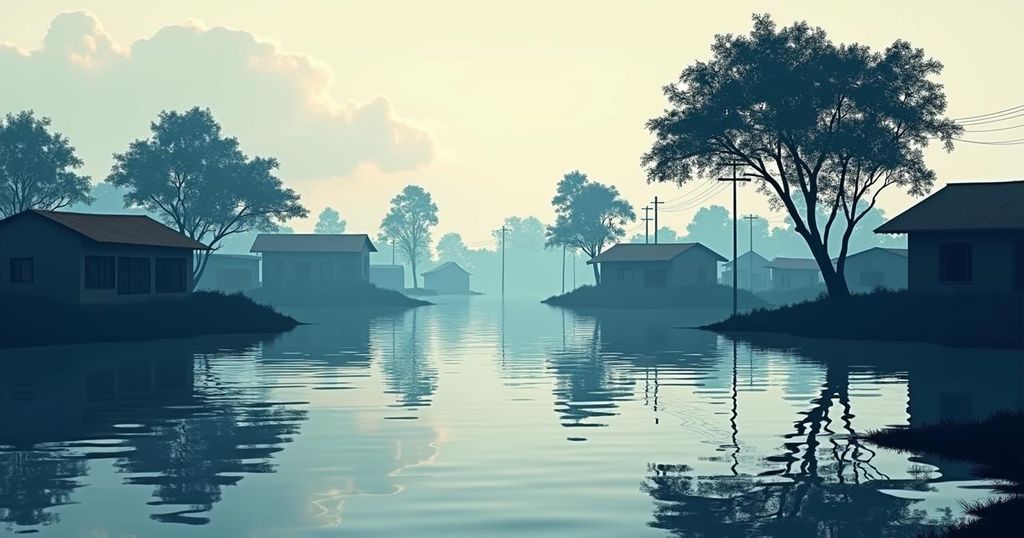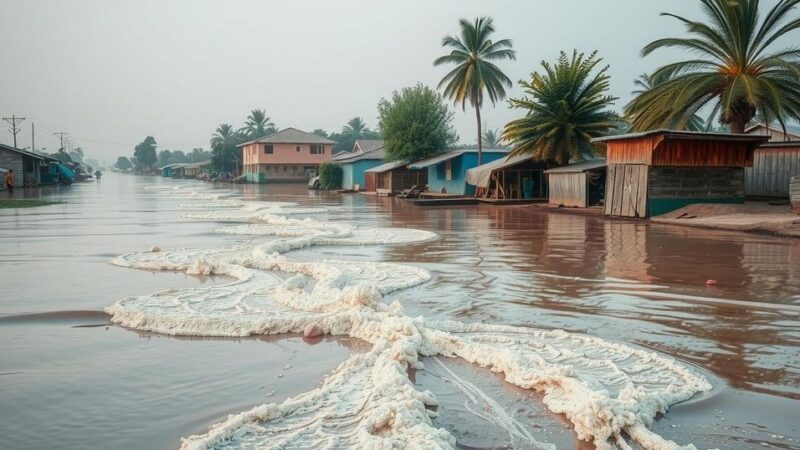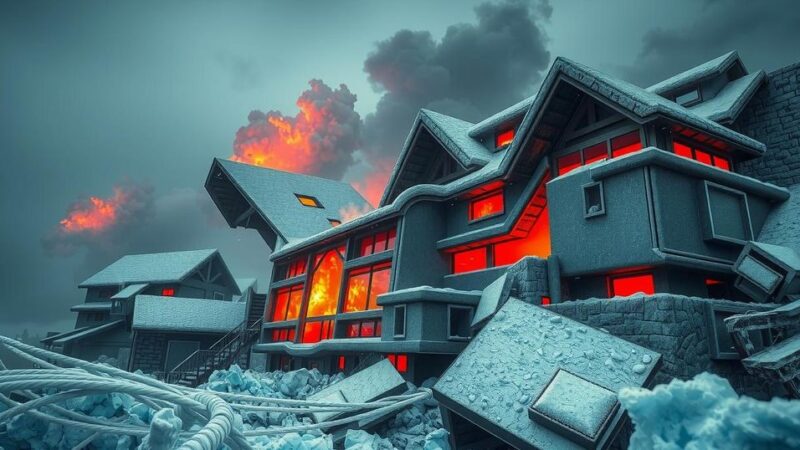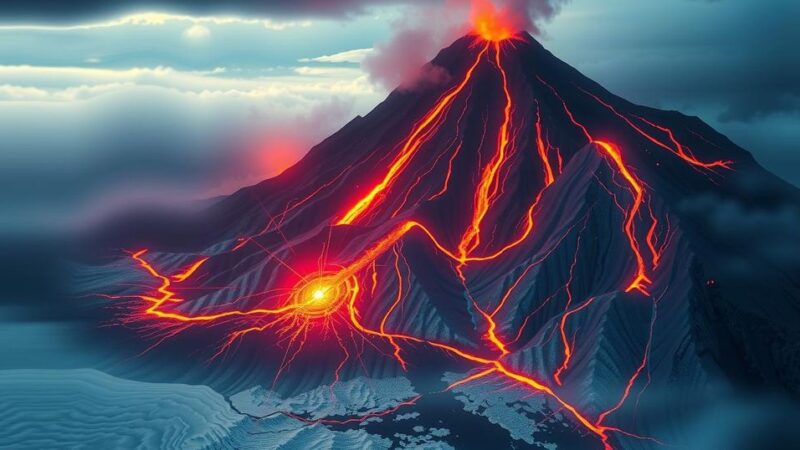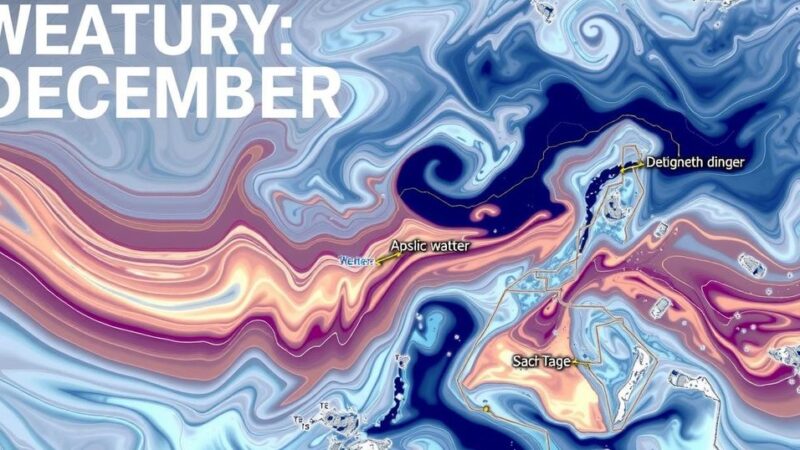A dam collapse in Borno State, Nigeria, has triggered severe flooding, affecting one million people and destroying thousands of homes. Authorities are working to provide shelter for displaced residents amid a growing humanitarian crisis, exacerbated by previous conflicts and natural disasters in the region.
In northeastern Nigeria, severe flooding has affected approximately one million individuals following the catastrophic collapse of a dam in Borno State. This unfortunate incident has led to the destruction of thousands of homes and exacerbated an already critical humanitarian situation. Borno State Governor Babagana Zulum announced on Wednesday that resources are being strained as authorities urgently seek to rescue residents and provide them with temporary shelter. Heavy rains leading to the dam’s overflow occurred on Tuesday, washing away numerous wildlife from a state-owned zoo, including crocodiles and snakes, into surrounding flooded areas. Al Jazeera reporter Ahmed Idris noted a substantial influx of individuals fleeing flood-prone zones, highlighting the chaos as civilians employ limited diving equipment in attempts to rescue those trapped. While bodies have started to be recovered, a successful rescue effort was reported to have saved baby twins from the inundated landscape. Local officials have termed this the worst flooding event the state has experienced in two decades, yet no official death toll has been declared. Meanwhile, Vice President Kashim Shettima visited the displaced peoples on Tuesday evening, assuring them of forthcoming aid in the form of food, medical assistance, and shelter. Unfortunately, reports from Idris indicated that the delivery of such supplies has been alarmingly minimal to date. Governor Zulum’s visit to the Bakassi camp on Wednesday, an area that previously housed many displaced by Boko Haram, revealed a situation where a quarter of the state capital, Maiduguri, had been submerged. “You can see how water completely flooded the area, sewerages were completely flooded, that means waterborne diseases would be transmitted,” Zulum explained, addressing local citizens and acknowledging the threat to public health. This recent dam failure only deepens a humanitarian crisis that has plagued Borno for nearly a decade, primarily due to a violent insurgency instigated by Boko Haram, claiming over 35,000 lives and resulting in the displacement of 2.6 million people in the region. The National Emergency Management Agency has reported that flooding across various Nigerian states has resulted in the deaths of 229 individuals since the year’s onset, with August’s flooding in Jigawa, Adamawa, and Taraba alone responsible for 49 fatalities. The 2022 flooding catastrophe remains one of the deadliest, claiming 600 lives.
The context of this article lies in the ongoing humanitarian crisis in northeastern Nigeria, particularly in Borno State, which has been severely impacted by a combination of natural disasters and armed conflicts over the past decade. The region has been grappling with the repercussions of the Boko Haram insurgency, which has destabilized the area, leading to significant loss of life and mass displacement. The recent dam collapse, triggering extensive flooding, adds another layer of complexity to this precarious situation, jeopardizing the lives and wellbeing of countless residents already affected by previous conflicts and natural calamities.
In conclusion, the flooding caused by the dam collapse in Borno State has left a devastating impact on one million residents, as authorities struggle to provide necessary aid amidst a backdrop of severe humanitarian challenges. Despite promises of assistance from government officials, the reality on the ground reveals a dire need for immediate resources and support to prevent further loss of life and mitigate the spread of diseases in the affected areas. This incident underscores the urgent need for effective disaster management strategies and international support to address the ongoing crises in northeastern Nigeria.
Original Source: www.aljazeera.com

